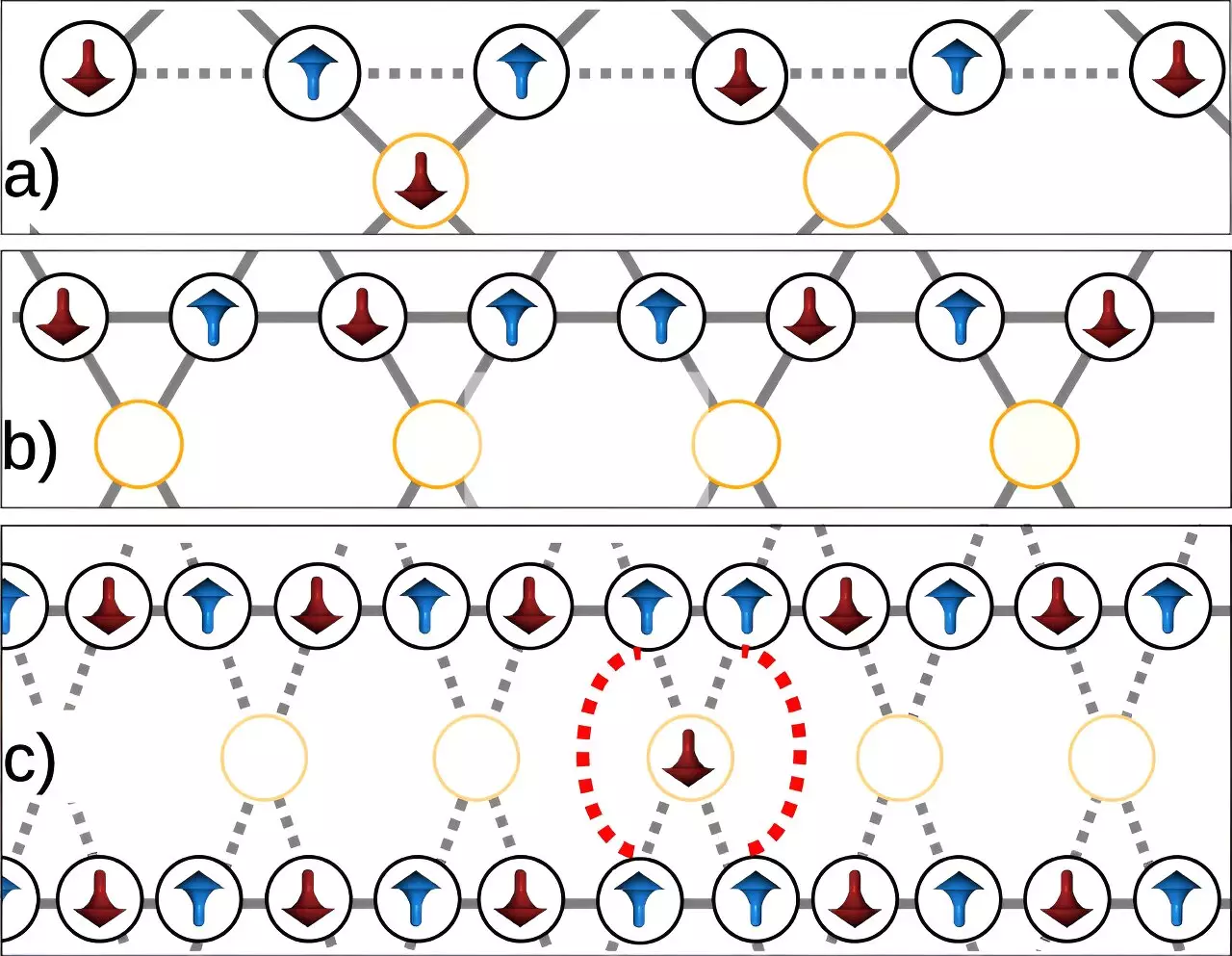Experimental research conducted by a joint team from Los Alamos National Laboratory and D-Wave Quantum Systems aims to understand the complex role of fluctuations in inducing magnetic ordering on a network of qubits. This research offers valuable insights into the behavior of quantum systems and has the potential to reduce the cost of quantum processing in devices.
Examining Quantum Behavior
Unlike previous studies that focused on achieving superior quantum computer performance, the team chose to explore the behavior of a dense network of interconnected qubits. Using a D-Wave quantum annealing platform, approximately 2,000 qubits within an asymmetric hexagonal lattice were investigated. The team specifically looked at the impact of factors that typically induce disorder on the magnetic moments of the qubits.
To understand the effects of fluctuations on the quantum system, the team introduced both thermal and quantum fluctuations. Thermal fluctuations are associated with temperature, while quantum fluctuations result from the application of an external magnetic field. These fluctuations led to dynamic changes in the alignment and arrangement of the magnetic moments, allowing the team to experiment with entropy, magnetic moments, and disorder within their designed lattice.
The results of the research challenged conventional assumptions about the relationship between disorder and entropy in quantum systems. Under certain physical conditions, configurations with a clustered distribution of defects emerged as the more likely state, contradicting the expectation that configurations with higher entropy should exhibit greater disorder. This phenomenon, known as “order by disorder,” reveals that the addition of fluctuations can actually promote order in a quantum system.
The team’s findings offer valuable insights for improving the construction of quantum systems. By observing how fluctuations influence the mechanisms and physical conditions leading to defect clustering, researchers can improve the overall performance of quantum systems. The paradoxical nature of promoting order through fluctuations opens up new possibilities for enhancing quantum processing capabilities.
In the future, further developments in the D-Wave quantum platform and experimental capabilities will allow researchers to focus specifically on the role of quantum fluctuations. By disentangling quantum fluctuations from thermal fluctuations, scientists can gain a deeper understanding of their individual impacts on quantum systems. This knowledge will contribute to the continued advancement of quantum technologies.
The joint research conducted by Los Alamos National Laboratory and D-Wave Quantum Systems sheds light on the paradoxical role of fluctuations in quantum systems. By demonstrating that fluctuations can promote order, the team challenges traditional assumptions about disorder and entropy. These findings provide valuable insights for improving the construction and performance of quantum systems, paving the way for future advancements in quantum computing.


Leave a Reply